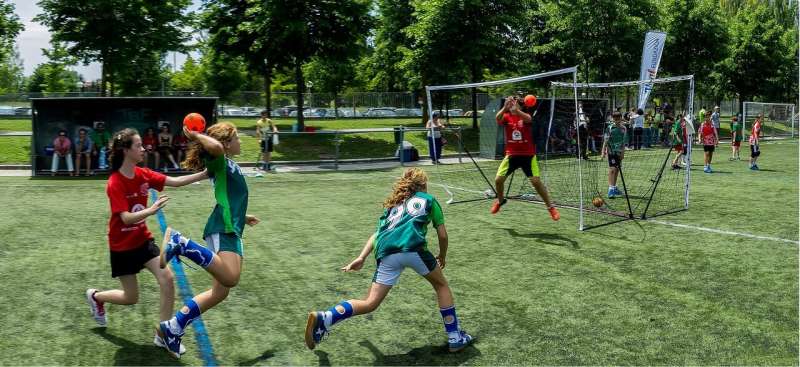
A recent Finnish study has found that good physical fitness from childhood to adolescence is linked to better mental health in adolescence. These results are significant and timely, as mental health problems are currently a major societal challenge, affecting up to 25–30% of young people. These findings suggest that improving physical fitness from childhood can help prevent mental health problems.
The paper is published in the journal Sports Medicine.
In a study by the Faculty of Sport and Health Sciences at the University of Jyväskylä and the Institute of Biomedicine at the University of Eastern Finland, the physical fitness of 241 adolescents was followed from childhood to adolescence for eight years. The study showed that better cardiorespiratory fitness and improvements in it from childhood to adolescence were associated with fewer stress and depressive symptoms in adolescence.
Additionally, the study found that better motor fitness from childhood to adolescence was associated with better cognitive function and fewer stress and depressive symptoms. However, the association between motor fitness and depressive symptoms was weaker than the one between cardiorespiratory fitness and depressive symptoms. Screen time measured in adolescence partly explained the associations of cardiorespiratory fitness and motor fitness with mental health.
These findings advocate for investment in physical fitness early in life as a potential strategy for mitigating mental health and cognitive issues in adolescence.
“The concern about the declining physical fitness in children and adolescents is real. However, the focus has been on physical health,” says Eero Haapala, Senior Lecturer of Sports and Exercise Medicine at the Faculty of Sport and Health Sciences, University of Jyväskylä.
“Our results should encourage policymakers as well as parents and guardians to see the significance of physical fitness more holistically, as poor physical fitness can increase mental health challenges and impair cognitive skills needed for learning.”
“The whole of society should support physical fitness development in children and adolescents by increasing physical activity participation at school, during leisure time, and in hobbies,” says Haapala.
This study is based on longitudinal data from the ongoing Physical Activity and Nutrition in Children (PANIC) study conducted at the Institute of Biomedicine, University of Eastern Finland, and led by Professor Timo Lakka. The study followed the physical fitness of 241 individuals for eight years, from childhood to adolescence. Mental health assessments were conducted during adolescence. The study was published in Sports Medicine.
The PANIC Study is part of the Metabolic Diseases Research Community at the University of Eastern Finland. The research community is dedicated to investigating major cardiometabolic diseases.
By leveraging genetics, genomics, translational research, and lifestyle interventions, the community aims to provide robust evidence on disease mechanisms and advance early diagnosis, prevention, and personalized treatment. The research community consists of 20 research groups, spanning basic research to patient care.
More information:
Eero A. Haapala et al, Childhood Physical Fitness as a Predictor of Cognition and Mental Health in Adolescence: The PANIC Study, Sports Medicine (2024). DOI: 10.1007/s40279-024-02107-z
Citation:
Finnish study finds good physical fitness from childhood protects mental health (2024, October 15)
retrieved 16 October 2024
from https://medicalxpress.com/news/2024-10-finnish-good-physical-childhood-mental.html
This document is subject to copyright. Apart from any fair dealing for the purpose of private study or research, no
part may be reproduced without the written permission. The content is provided for information purposes only.

